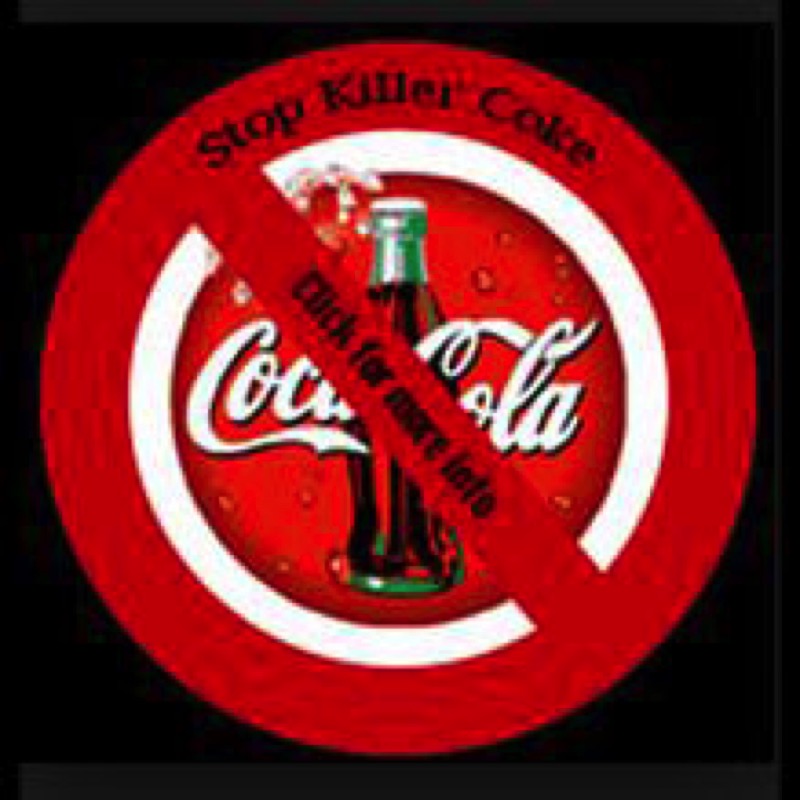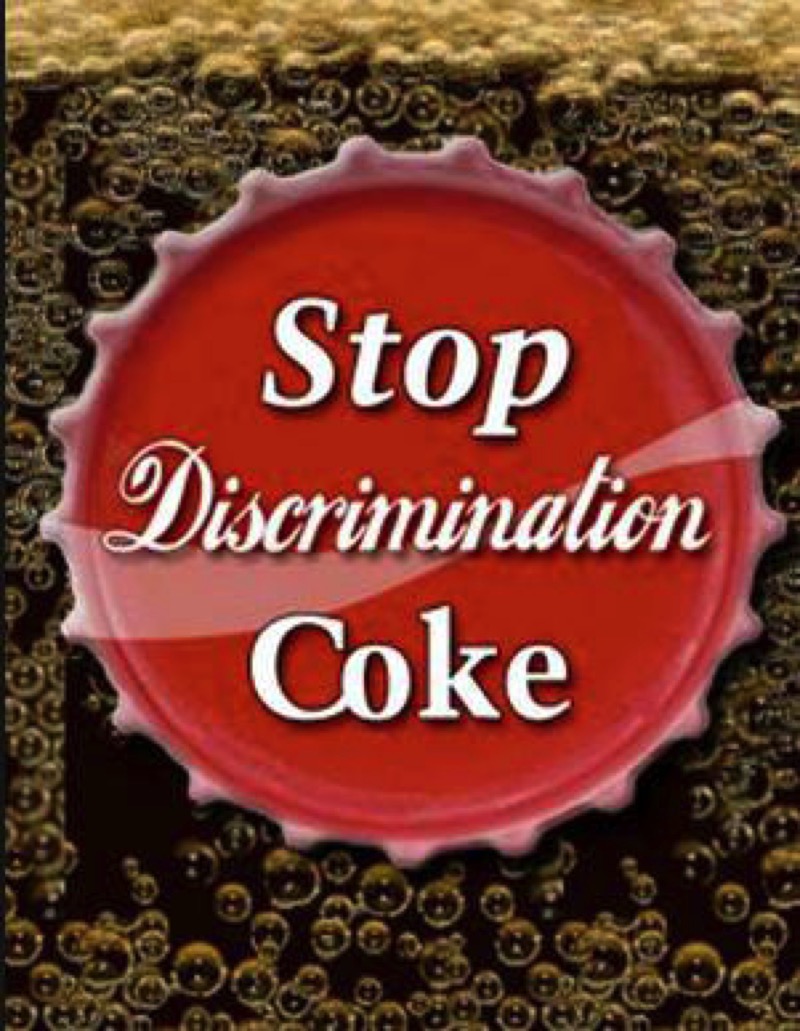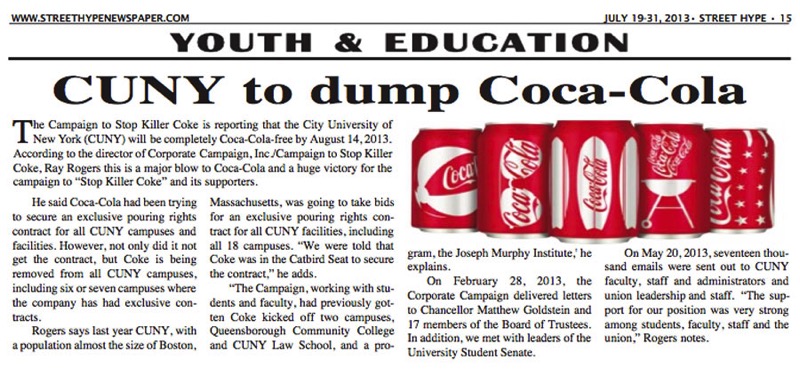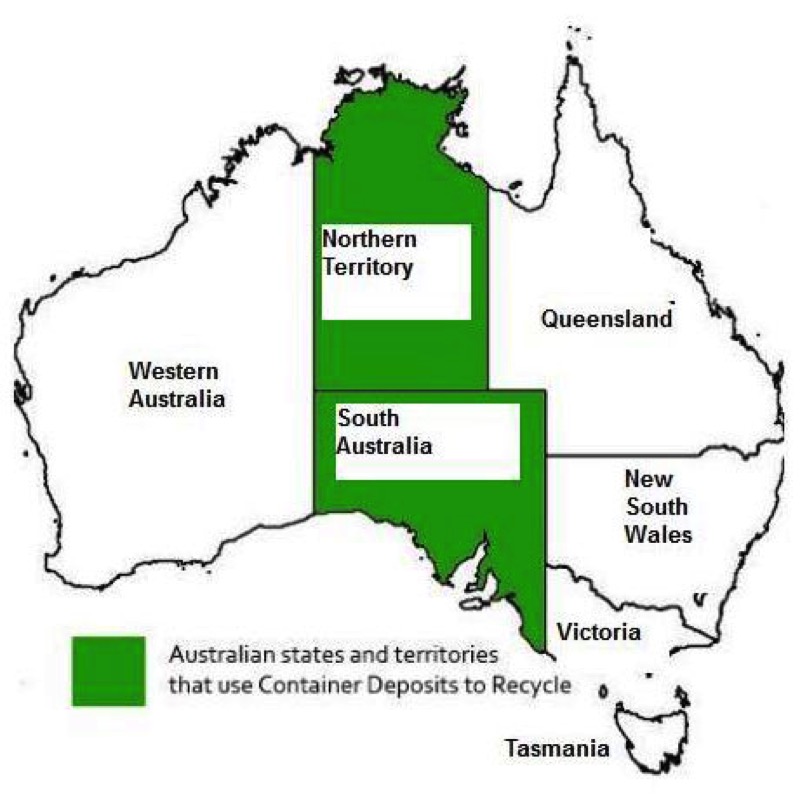Killer Coke Newsletter September 5, 2013
Coca-Cola Suffers Big Losses in the U.S., England & Australia
Contents of the Newsletter
- Colossal Victory at CUNY (NYC/US) Will Cost Coke Hundreds of Millions of Dollars
- University of Sussex (UK) Students' Union Votes to Renew Coke Boycott
- In Australia, Coke Loses Effort to Block 'Container Deposit Scheme'
- Please help with a donation to the Campaign
1. Colossal Victory at CUNY Will Cost Coke Hundreds of Millions of Dollars
Inside Story: How The Coca-Cola Company Suffered Huge Loss at City University of New York
As of August 2013, nowhere on the City University of New York (CUNY) campuses can you find a Coke machine or buy a can, bottle or cup of any Coca-Cola beverage. Nor will you see any Coca-Cola advertisements plastered around the campuses pushing the brand. No longer will Coca-Cola be churning out hundreds of thousands of "Cokeheads" — students indoctrinated with the Coke brand at CUNY every year.
CUNY, with campuses located throughout New York City, which is the largest consumer market in the United States, consists of 24 institutions including 11 senior colleges and 7 community colleges with more than 540,000 students and 40,000 faculty and staff, a total populace that is about the size of the city of Boston.

Last year, David Rosenberg, a student at CUNY's Brooklyn College and now president of that college's student body, informed the Campaign to Stop Killer Coke that The Coca-Cola Company was seeking to secure an exclusive Pouring Rights Contract for all CUNY facilities. This would mean that only Coca-Cola soft drinks, waters, juices, sports drinks and other beverages could be advertised, sold and distributed at CUNY facilities and events. No beverages that competed with Coca-Cola could, in any way, be marketed at or through CUNY. Coca-Cola, in essence, would have a complete monopoly throughout the nation's largest urban university.
Research showed that Coca-Cola was the dominant brand at CUNY covering half of CUNY's population with exclusive Pouring Rights Contracts on at least eight of CUNY's campuses, including Brooklyn College, and shared presence in other facilities. Coke's market at CUNY would have been even larger except for the fact that the Campaign, working with student leaders in 2006, got Coke kicked out of Queensborough Community College where it had an exclusive Pouring Rights Contract and out of CUNY School of Law, one of the country's pre-eminent public interest law schools. The Joseph Murphy Institute at CUNY, in support of the Campaign, also cut its ties with Coca-Cola by removing Coke machines in 2007.
The Professional Staff Congress (PSC), an affiliate of the American Federation of Teachers, is the labor union that represents CUNY faculty and staff. For some years, the PSC has banned Coca-Cola beverages from its facilities and functions and supported efforts to stop Coke from expanding its presence at CUNY. The overwhelming majority of campus-wide student leaders, when presented with the issues, were also supportive of making CUNY a Coca-Cola-free zone.
How did this all come about?
In August 2012, the Campaign alerted Peter Hogness, editor of the Clarion, the newspaper of the Professional Staff Congress, that The Coca-Cola Company was in the catbird's seat to win exclusive pouring rights for all of CUNY. The paper, which is mailed to its active and retired members and distributed throughout CUNY, published an article in its October edition entitled, "CUNY Beverage Deal: Activists Insist that 'Coke Is Not It'." The following excerpts are from the article by Sarah Jaffe:
"Last June 2012, the CUNY Board of Trustees voted to offer the exclusive right to sell soft drinks, bottled water and other beverages 'to a single manufacturer for the University as a whole'...
"Companies expected to submit proposals include Coca-Cola, a student with knowledge of the process told Clarion. Though the trustees' resolution stipulates that the chosen company should be a 'responsive and responsible offeror,' Coca-Cola has faced widespread criticism for its labor rights record, particularly at its bottling plants in Colombia.
" 'All respondents to the request for proposals must enforce fair labor practices in the United States and abroad with respect to its employees and those of its bottlers, distributors and other contractors,' CUNY spokesperson Rita Rodin told Clarion. 'The proposals must include evidence of these practices.' If so, labor advocates say, any proposal from Coca-Cola should be rejected...
"...the PSC and its state affiliate, New York State United Teachers, voted not to sell or serve Coke products at their offices, conventions and other events...'
" 'It's imperative for public institutions to use their purchasing power wisely,' [Alex] van Schaick told Clarion. 'The University should not be supporting companies or entertaining bids from companies that have active campaigns against them,' for violations of labor rights."
On February 28, 2013, letters, accompanied with hard hitting campaign literature exposing Coke's global human rights abuses ranging from complicity in violence against union leaders in Colombia and Guatemala to racial discrimination against Black and Latino workers at Coca-Cola facilities in New York City and surrounding areas, were addressed and delivered to the offices of CUNY Chancellor Matthew Goldstein and each of the 17 members of CUNY's board of trustees.
Similar letters were also delivered to every member of the University Student Senate (USS) and it's executive director. At a USS meeting in March, CUNY graduate Ian Hoffmann, Shirley Irons, Nancy Siesel and Ray Rogers from the Campaign made a presentation and provided DVDs of the film, "The Coca-Cola Case", as well as Campaign buttons, posters and literature for each of the 50 or so student leaders present at the meeting where the Campaign to Stop Killer Coke won overwhelming support.
On March 28, Sharon Russell, Associate Controller for Procurement, Office of Budget and Finance,responded to our letters to the Chancellor and Trustees saying that:
"...All proposers are required to demonstrate compliance with the minimum qualifications set forth in the RFP, which include the enforcement of fair labor practices in the United States and abroad with respect to its employees and those of its bottlers, distributors and other contractors...As a publicly funded University, CUNY complies with all applicable procurement regulations..."
In the April 1-18, 2013 issue of a widely-distributed community newspaper, Street Hype, an article appeared entitled, "CUNY Graduate Victim of Coca-Cola's Discriminatory Employment Practices," which was sent to thousands of CUNY faculty and administrators.

On May 6, the Campaign responded to Ms. Russell with a four-page letter. Copies of the letter were sent via email under the subject, "Coca-Cola & CUNY Should Not Mix: Will CUNY Violate Its Own Regulations?" to the top administrators at CUNY's 24 institutions and to the leadership of the Professional Staff Congress, the University Student Senate, the Chancellor and Board of Trustees. In part, the letter stated:
"Who is in charge of investigating whether The Coca-Cola Company meets the standards of complying with "fair labor practices in the United States and abroad with respect to its employees and those of its bottlers, distributors and other contractors"? What methodology is being used in the investigation?
"Our letter [to the Chancellor and Trustees] clearly laid out a series of very grave charges, which are well-documented in films, books, reports, lawsuits, first-person accounts and on websites such as KillerCoke.org, StopCokeDiscrimination.org and IndiaResource.org, clearly indicating that The Coca-Cola Company and many of its bottlers, are involved in egregious labor and human rights abuses worldwide, including right here in New York City. These charges are not new; this company has an ugly past and present.
"When can my office expect a meeting with whomever is in charge of investigating whether The Coca-Cola Company, its bottlers, distributors and other contractors are complying with fair labor practices since we are well-recognized for our knowledge and involvement relating to Coca-Cola and these issues?"
On May 20, the Campaign emailed letters to 17,000 faculty, staff and union leaders throughout CUNY and asked them to communicate directly with the Controller's office, which many did. Others began circulating our letter to their constituencies, as well. The letter, in part, stated:
"Coca-Cola has positioned itself to secure an exclusive Pouring Rights Contract for CUNY...
"If Coca-Cola succeeds, this would tarnish the university's reputation and call into question the administration's integrity.
"Allowing Coca-Cola to brand CUNY would also be a huge slap in the face of Black and Latino students, who make up more than 50 percent of CUNY's student population, as well as faculty and staff. Current lawsuits describe local Coca-Cola plants as 'cesspools of racial discrimination' for Black and Latino workers. In fact, CUNY College of Technology graduate, Yvette Butler, is one of the many victims."
Dynamics throughout CUNY were set in motion to ensure that Coca-Cola would suffer its biggest setback worldwide in the educational community.
Pepsi got a great deal at $21 million! But Coke could have, and would have, given a lot more, but Coke and the CUNY administration both knew it wasn't feasible because of Coke's record of complicity in violence in Latin America, because of the numerous racial discrimination lawsuits filed by Black and Latino Coca-Cola employees working in plants in and around New York City and because Black and Latino students comprise more than 50 percent of CUNY's student body.
"Pepsi Wins Battle in Cola Wars: $21 Million CUNY Deal" by PATRICK McGEEHAN | August 13, 2013, The New York Times
Read Article
"The City University of New York, no stranger to campus skirmishes, has now taken a stance in the cola wars: 'no Coke, Pepsi.'
"Amid a campaign to persuade university administrators to ban Coca-Cola products, CUNY has given Coke's main rival, Pepsi-Cola, the exclusive right to distribute nonalcoholic beverages on all 24 of its campuses...
"In 2005, New York University banned Coke products from its campus for four years after students protested because of reports of the company's complicity in the murder of union leaders in Colombia.
"Citing that episode and complaints of discrimination by people who worked for the company in New York City, an anti-Coke campaign based in Brooklyn, the Campaign to Stop Killer Coke, pressed CUNY officials to take similar action...
"In May, the student senate at Brooklyn College passed a resolution to ban Coke there, said David J. Rosenberg, the president of the student government on that campus.
" 'The real drive behind that resolution was that we don't do business with corporations that have issues with human rights and workers' rights,' Mr. Rosenberg said...
"Mr. [Ray] Rogers said losing out at CUNY would be a blow to Coke because the university was one of the biggest in the country. CUNY has about 270,000 students seeking degrees on campuses of varying sizes, including Hunter College, City College of New York and the College of Staten Island. It has about an equal number of students in continuing education and adult courses, and about 40,000 faculty and staff members — a total audience of more than half a million people...
"Coca-Cola did not respond to requests for comment on Tuesday..."
"'CUNY to Dump Coca-Cola,' Street Hype, July 19-31, 2013
Read Article |
Read Issue
"The Campaign to Stop Killer Coke is reporting that the City University of New York (CUNY) will be completely Coca-Cola-free by August 14, 2013. According to the director of Corporate Campaign, Inc./Campaign to Stop Killer Coke Ray Rogers, this is a major blow to Coca-Cola and a huge victory for the campaign to 'Stop Killer Coke' and its supporters...
"On February 28, 2013, the Corporate Campaign delivered letters to Chancellor Matthew Goldstein and 17 members of the Board of Trustees. In addition, we met with leaders of the University Student Senate.
"On May 20, 2013, seventeen thousand emails were sent out to CUNY faculty, staff and administrators and union leadership and staff. 'The support for our position was very strong among students, faculty, staff and the union,' [Ray] Rogers notes."

2. University of Sussex (UK) Students' Union Votes to Renew Coke Boycott
Students at the University of Sussex recently voted in favor of renewing a 2005 boycott of Coca-Cola products on the university campus. In a 1,069 to 664 vote, Sussex students have sent a clear message that they want the boycott of Coca-Cola continued. The University has some 13,000 students.
From the Student Union website:
"In 2005, students at the Students' Union's Annual General Meeting voted to boycott Coca-Cola products in our shops and bars on ethical grounds.
"The two issues raised were firstly, claims of violence from 1995 and 1996 towards members of Colombian trade unions; and secondly, alleged bad effects on the local water of Coke's bottling plants in India.
"The Union replaced Coca-Cola with other drinks brands and has not sold Coca-Cola products since 2006.
"A continued boycott of Coca-Cola allows Sussex to translate its reputation for having a strong political conscience into a material form of action - a quality that continues to set our university out as a positive place, mindful of serious issues faced by our global community."
"Ray Rogers, director of the Campaign to Stop to Stop Killer Coke, applauds the students' effort to hold the Coca-Cola Company accountable for its gross human rights violations in Latin America and its greedy water rights practices in India stating that "Sussex University joins a long list of schools and universities who have taken similar action in an effort to pressure the Coca-Cola Company to change the way it does business in countries outside of the United States. The idea that Coca-Cola shareholders benefit from practices clearly not allowed in this country is just plain wrong."
3. In Australia, Coke Loses Effort to Block 'Container Deposit Scheme': Students Continue to Take a Stand & Boycott Coke
After many months of struggle against Coca-Cola in Australia's Northern Territories, the Australian public defeated Coca-Cola Amitil (CCA), which had been blocking a container deposit scheme (CDS) which would provide for a ten cents deposit on beverages.
Students at Canterbury Girls High School in Sydney, New South Wales (NSW), had been concerned about what was happening to their environment. "...you only have to go down to the Cooks River in Sydney to see that doing nothing results in a big problem. Any day down there you will see thousands of bottles either in the river or on the banks. It is a disgrace."
The CDS in South Australia had been extremely successful in increasing the recycling rate, reducing litter, reducing the costs of waste management to local government and providing recycling options." The students asked "So why don't we have it in NSW or indeed nationally?"
When Coca-Cola blocked the CDS by going to court in the Northern Territories, the students decided to "take a stand" against Coca-Cola. They said, "We want to live in a place that is clean and where people care for their environment and take steps to protect it for future generations. The students asked the school to set up a water bottle refill station and stop selling plastic bottles so that students would use reusable bottles.
The students then decided to boycott Coca-Cola beverages. "Why should we support an organization that appears to take no responsibility for protecting our environment?" They asked their canteen to stop selling all products sold by Coca-Cola because Coke is seen as a negative leader opposing recycling efforts that "could reduce container waste dramatically."
"We began wondering how we could encourage recycling further — we like the idea of 'think globally, act locally' and we began asking why bottles are not recycled in NWS and end up in rivers instead."
"Why our school is boycotting Coke," The Sydney Morning Herald by Thandiwe Gudu, July 28, 2013
Read Article
The map below shows the areas that now use container deposits to recycle

"Container deposit scheme back on full-bottle track" by Staff reporters. August 7, 2013, ABC News
Read Article
"Australia backs container deposits in the Northern Territory" by Kate Tilley, May 1, 2013, Plastics News
Read Article
The Australian Government will introduce regulations to legalize the Northern Territory Government's container deposit scheme (CDS). This popular decision followed a court ruling of the previous month that the container deposit scheme conflicted with federal law and that a deposit scheme was illegal.
"Coca-Cola had challenged the legality of the CDS in the Federal Court in Sydney and won. However, on April 19, Australia's peak intergovernmental forum, the Council of Australian Governments (COAG) agreed to the Northern Territory Government's application for a permanent exemption
"Sydney-based Total Environment Centre Executive Director Jeff Angel congratulated the territory for "standing up to CCA [Coca-Cola Amitil]" and defending a scheme that he says doubles bottle and can recycling rates over a year. Angel said COAG's decision is "a turning point" in the battle for a national scheme because it demonstrates bipartisan political support. Plans for a national CDS have been in progress for years."
A bit of research shows the extensive relationship between Coca-Cola Amatil and The Coca-Cola Company (TCCC). TCCC is the largest shareholder of CCA, holding 29.3 percent of CCA's stock. In addition, Coca-Cola nominates two Non-Executive Directors to the current nine-member Board. One of the Non-Executive Directors, Geoffrey Kelly, appointed in 2004, was previously general counsel and senior vice-president of The Coca-Cola Co. and has held a series of positions in the legal departments of both The Coca-Cola Export Corporation and TCCC.
4. Please Help With a Donation to the Campaign
The Campaign to Stop Killer Coke with its worldwide network of volunteer supporters continues to wage an historic and very effective campaign but we need your help in fundraising. The staff of Corporate Campaign, Inc., the founder of the Campaign to Stop Killer Coke, has put in many tens of thousands of professional staff hours to wage the campaign. CCI has also spent hundreds of thousands of dollars it has earned from work representing unions and NGO clients on other matters to finance the campaign.
We are asking and hoping that supporters will help us raise $100,000 or more before Coca-Cola's next annual meeting in April 2014 by making individual donations and holding fundraising events. You can contribute online through PayPal at KillerCoke.org Contribute or you can send a check or money order made payable to Campaign to Stop Killer Coke to:
Campaign to Stop Killer Coke
20 Jay St., #317
Brooklyn, NY 11201
1 (718) 852-2808
info@KillerCoke.org











